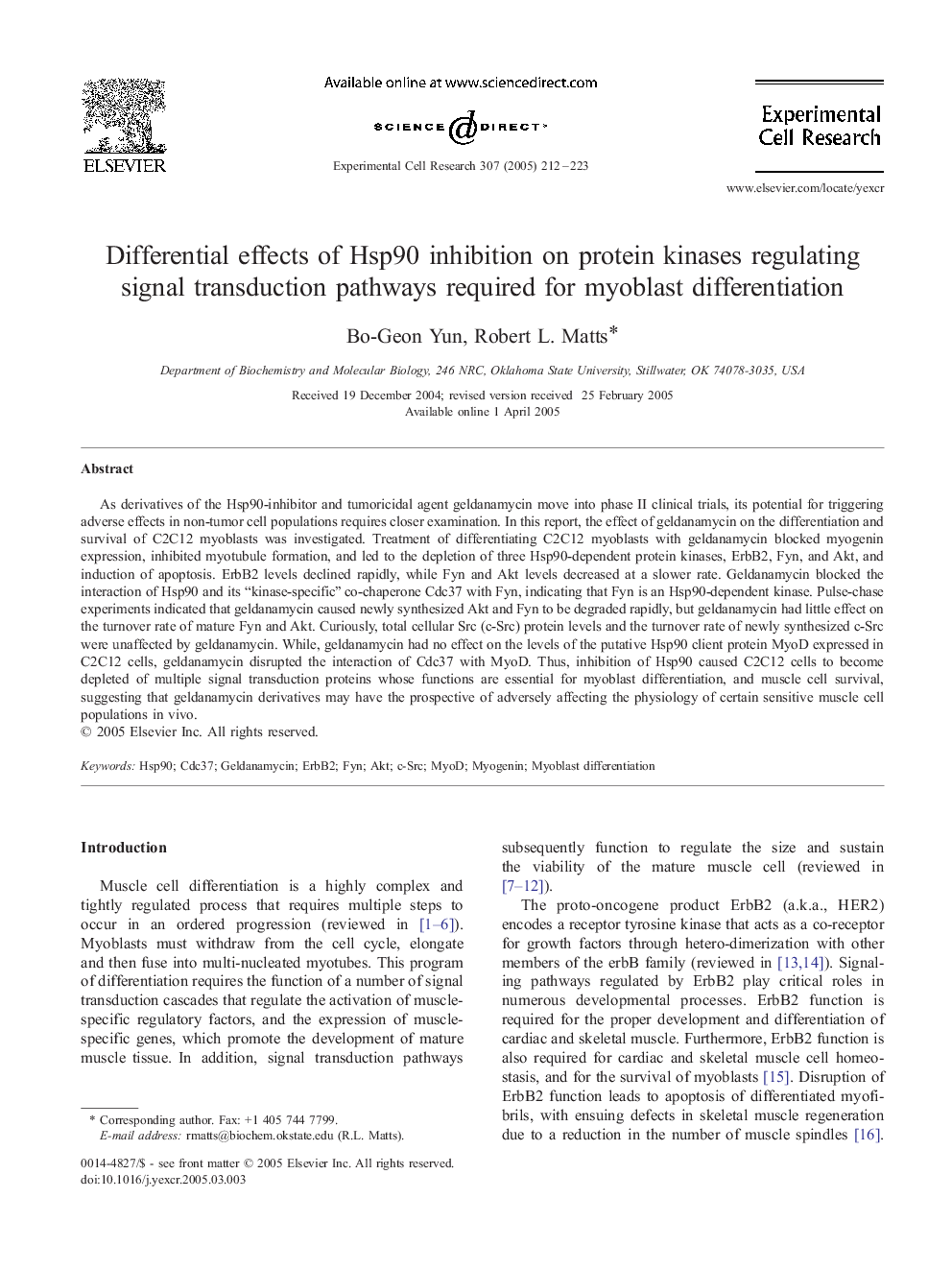| Article ID | Journal | Published Year | Pages | File Type |
|---|---|---|---|---|
| 10905211 | Experimental Cell Research | 2005 | 12 Pages |
Abstract
As derivatives of the Hsp90-inhibitor and tumoricidal agent geldanamycin move into phase II clinical trials, its potential for triggering adverse effects in non-tumor cell populations requires closer examination. In this report, the effect of geldanamycin on the differentiation and survival of C2C12 myoblasts was investigated. Treatment of differentiating C2C12 myoblasts with geldanamycin blocked myogenin expression, inhibited myotubule formation, and led to the depletion of three Hsp90-dependent protein kinases, ErbB2, Fyn, and Akt, and induction of apoptosis. ErbB2 levels declined rapidly, while Fyn and Akt levels decreased at a slower rate. Geldanamycin blocked the interaction of Hsp90 and its “kinase-specific” co-chaperone Cdc37 with Fyn, indicating that Fyn is an Hsp90-dependent kinase. Pulse-chase experiments indicated that geldanamycin caused newly synthesized Akt and Fyn to be degraded rapidly, but geldanamycin had little effect on the turnover rate of mature Fyn and Akt. Curiously, total cellular Src (c-Src) protein levels and the turnover rate of newly synthesized c-Src were unaffected by geldanamycin. While, geldanamycin had no effect on the levels of the putative Hsp90 client protein MyoD expressed in C2C12 cells, geldanamycin disrupted the interaction of Cdc37 with MyoD. Thus, inhibition of Hsp90 caused C2C12 cells to become depleted of multiple signal transduction proteins whose functions are essential for myoblast differentiation, and muscle cell survival, suggesting that geldanamycin derivatives may have the prospective of adversely affecting the physiology of certain sensitive muscle cell populations in vivo.
Related Topics
Life Sciences
Biochemistry, Genetics and Molecular Biology
Cancer Research
Authors
Bo-Geon Yun, Robert L. Matts,
